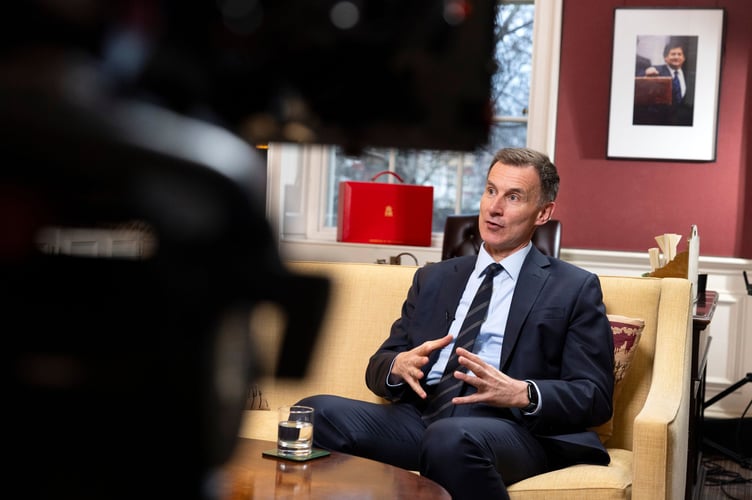In 2023, inflation came down by more than half and we saw that the economy recovered more quickly from the pandemic than we initially thought.
Having had a period in which taxes had to go up to pay for the generous support provided during coronavirus, the new year comes just as we can turn a corner and start cutting taxes.
Why? Because the right sort of tax cuts help to grow the economy.
That means not just more money in people’s pockets, but more money for public services such as the NHS.
Getting the economy growing means keeping people in work by rewarding hard work.
That is why I cut the main rate of National Insurance from 12 per cent to 10 per cent, starting last Saturday, January 6.
Twenty-seven million working people across the country will benefit from the lower tax bill.
For example, an average full-time nurse will save £520 in tax this year, a junior doctor £750, and an average teacher £630.
A household with two average earners will save nearly £1,000 just this year.
The wider impact of those cuts, according to the Office for Budget Responsibility, is that there will be the equivalent of 94,000 more full-time employees in the workforce in five years’ time.
That fills nearly one in ten vacancies throughout the economy and means more money available to fund public services.
But cutting National Insurance contributions was not actually the most expensive tax cut I announced.
That honour belongs to a tax cut most people have never heard of: increasing the tax break on capital investment made by businesses to the highest of any major economy.
‘‘Full expensing’’ will combine with other growth measures I announced in the Autumn Statement to boost annual investment in the economy by £20 billion a year and is the way we will close our productivity gap with countries such as Germany and the United States.
Chancellors have little control over GDP figures from one month to the next.
But we can do much more to help our longer term growth and competitiveness.
That is why the CBI described the Autumn Statement as a ‘‘gamechanger’’ that will fire up the British economy.

.jpeg?width=209&height=140&crop=209:145,smart&quality=75)



Comments
This article has no comments yet. Be the first to leave a comment.